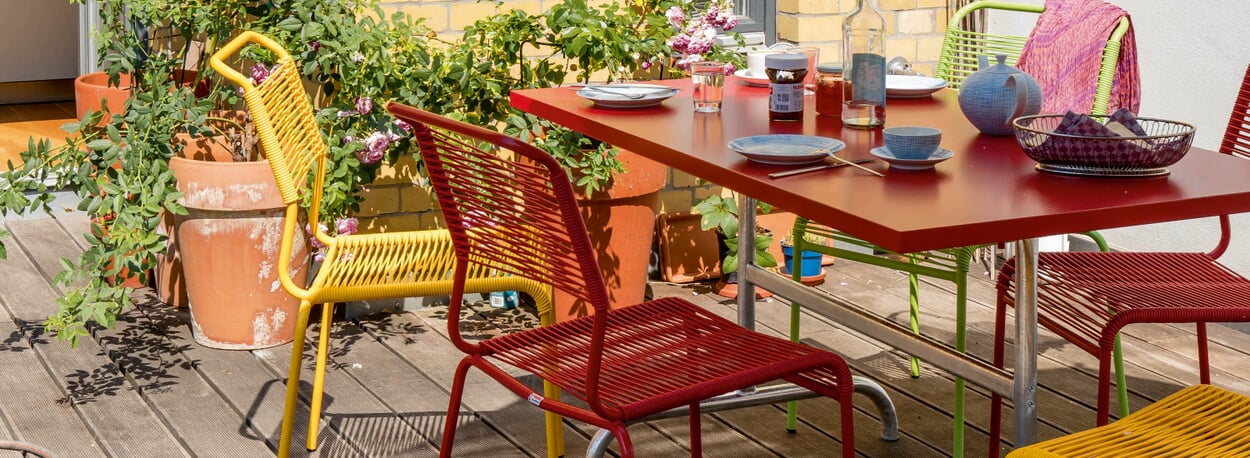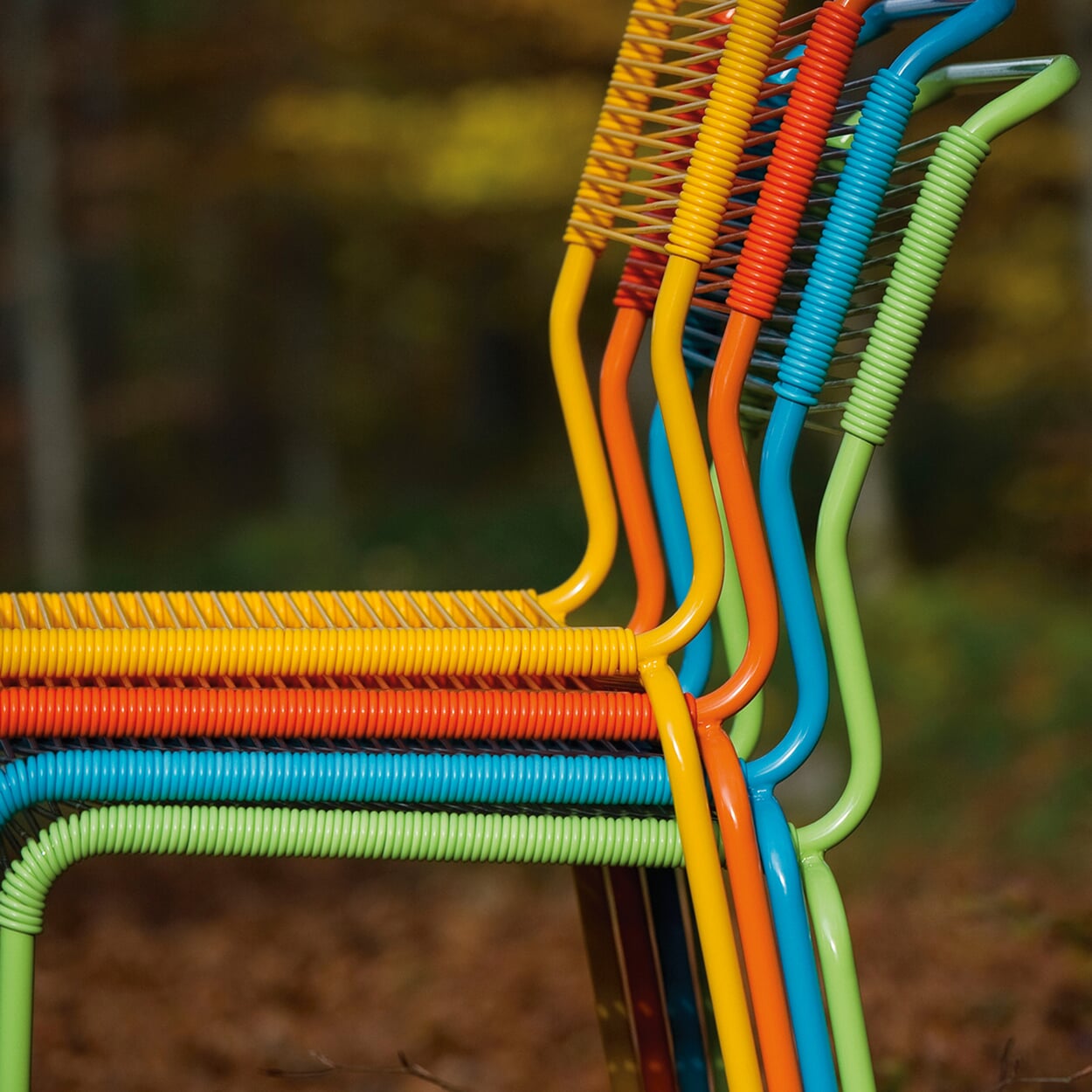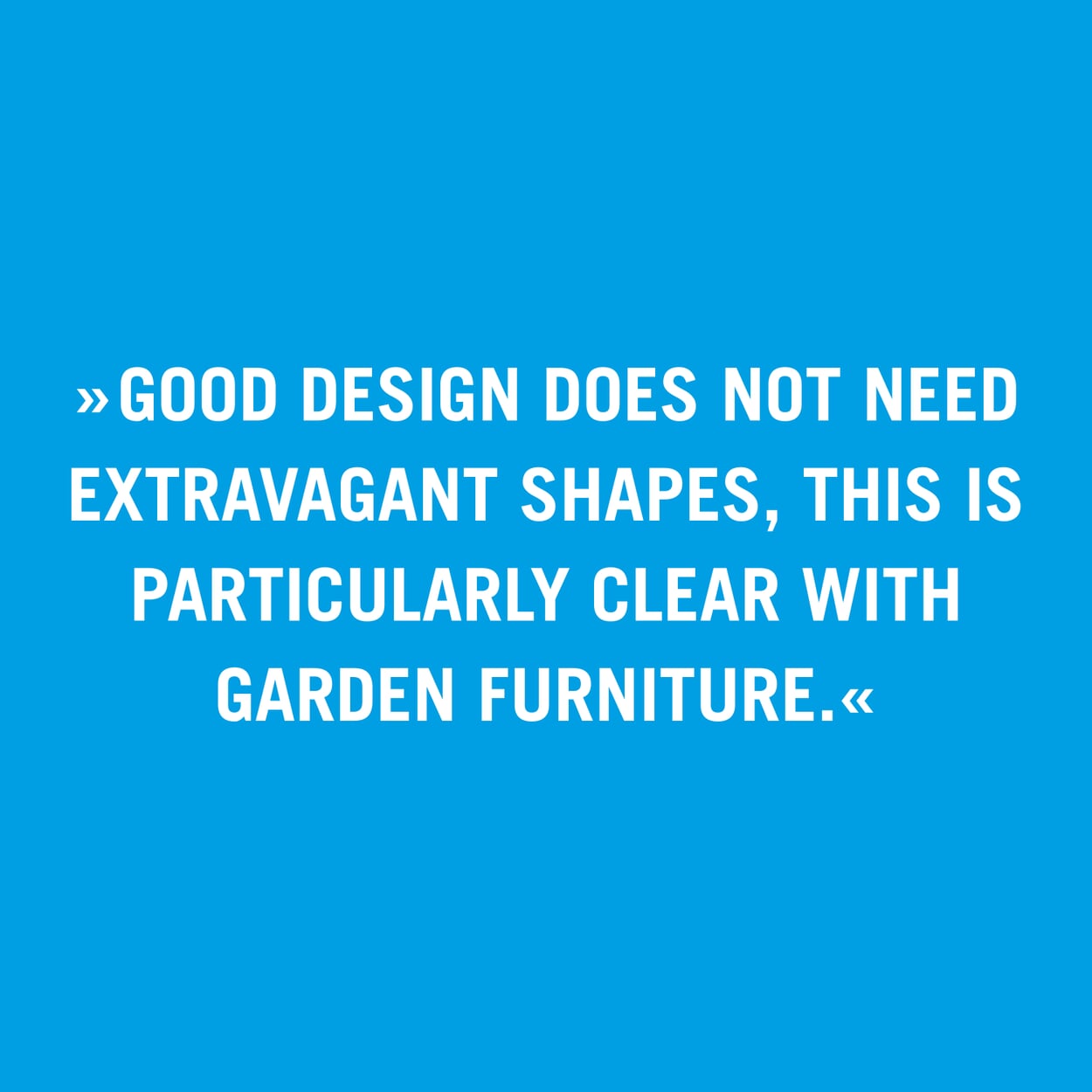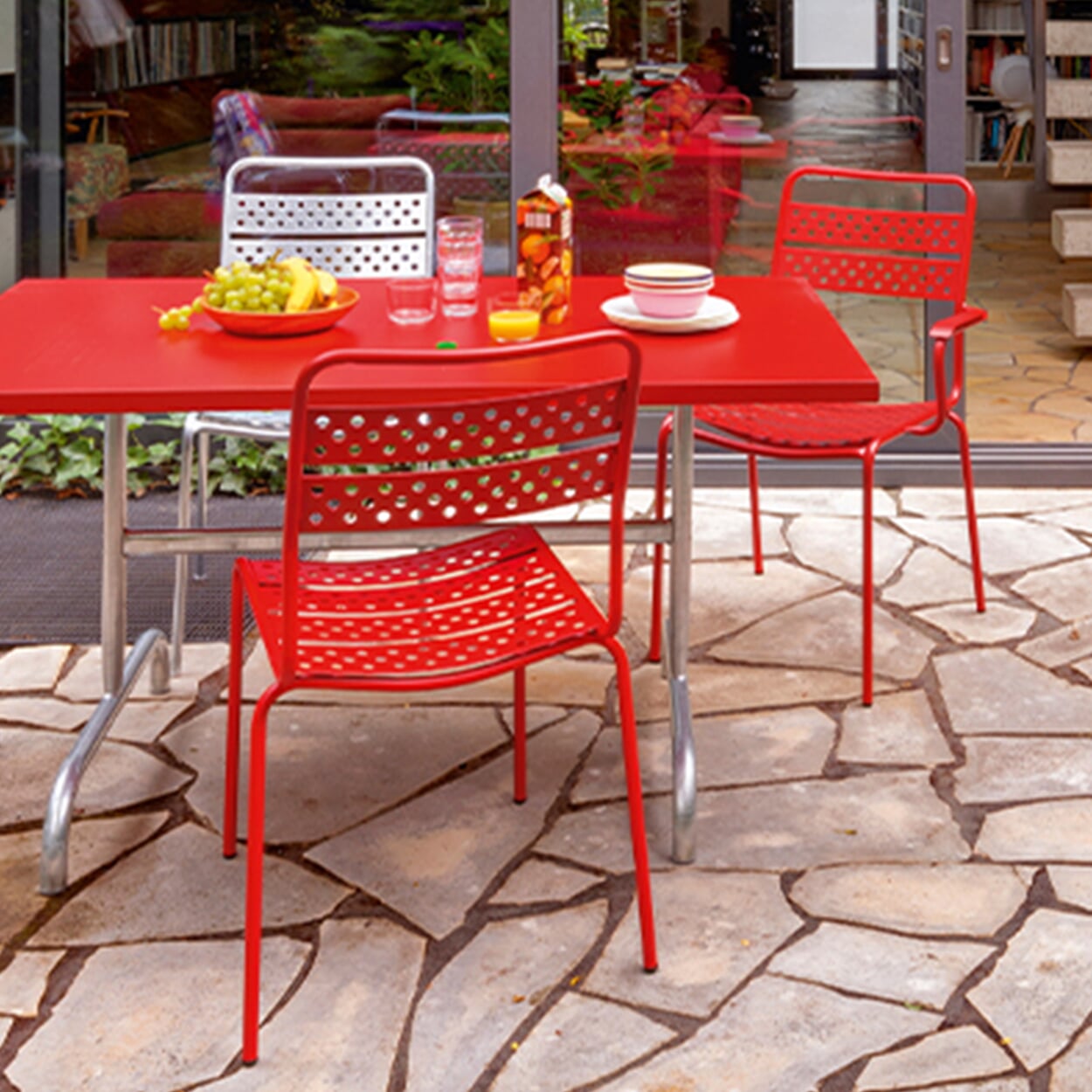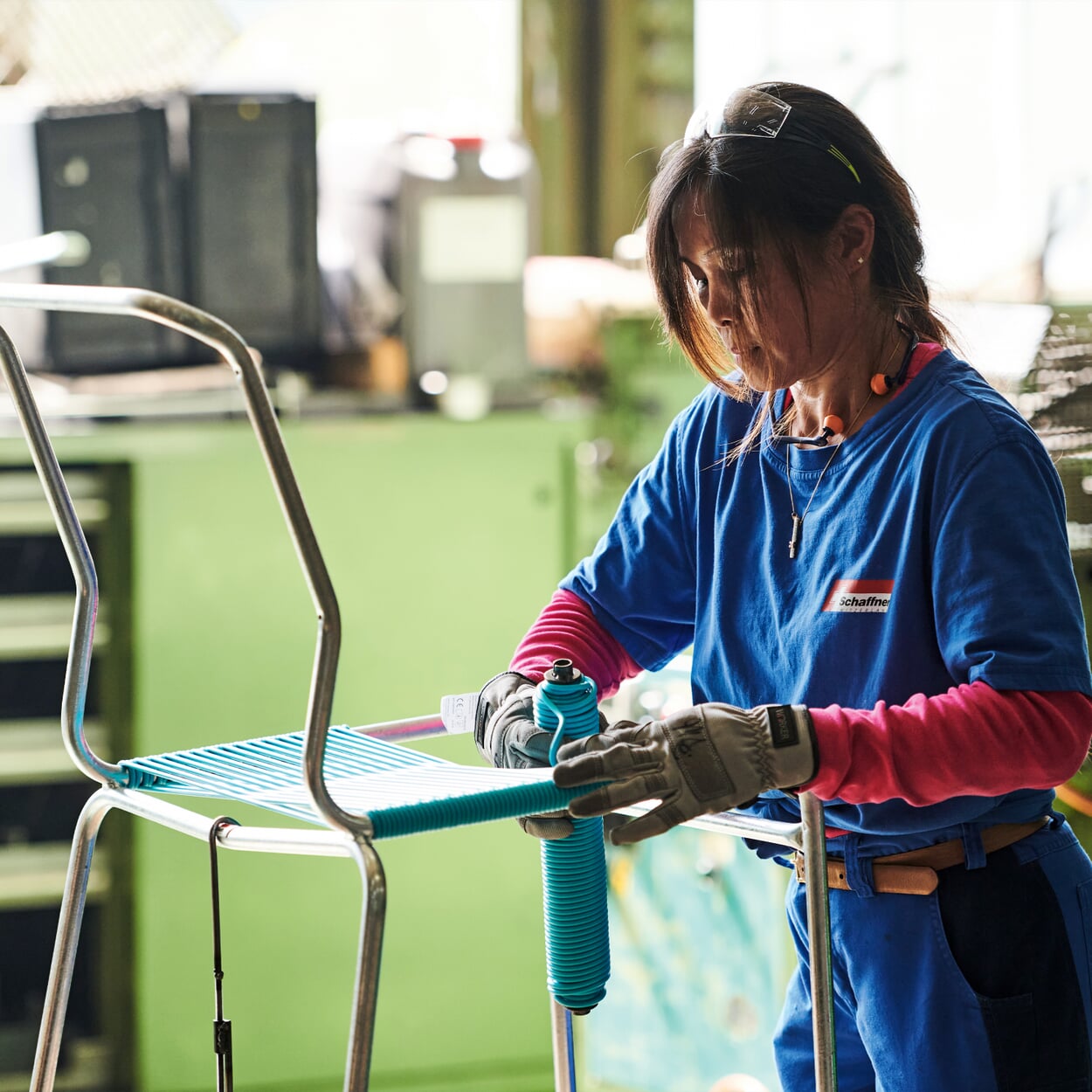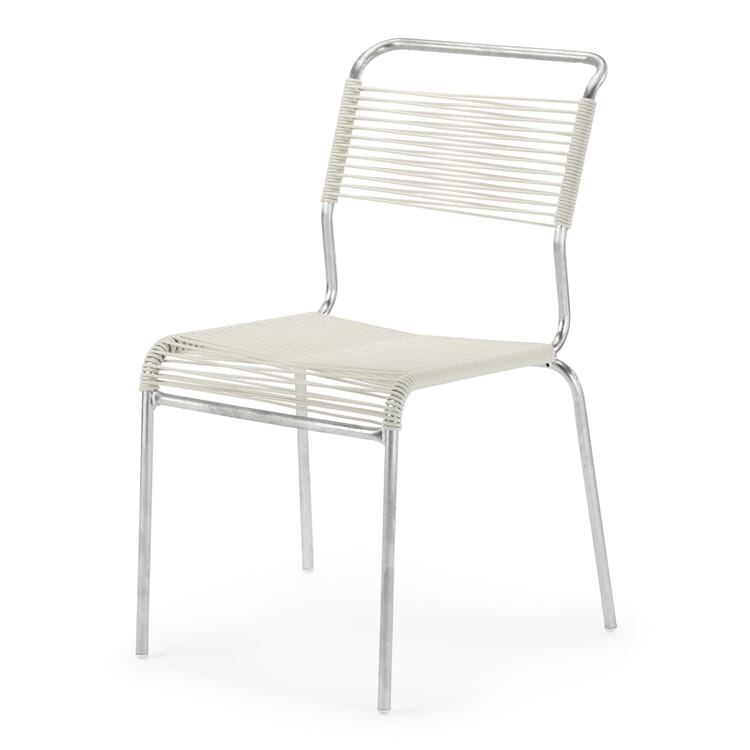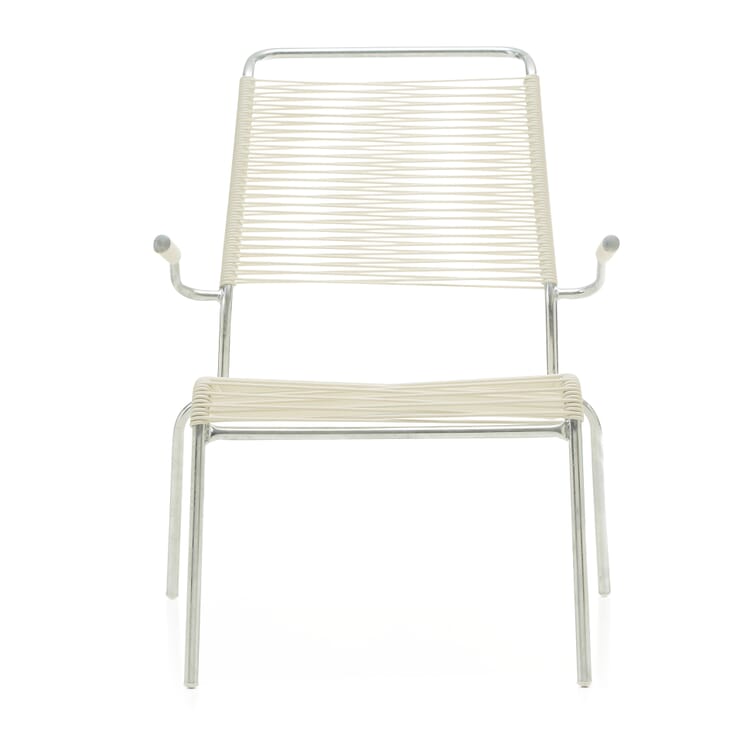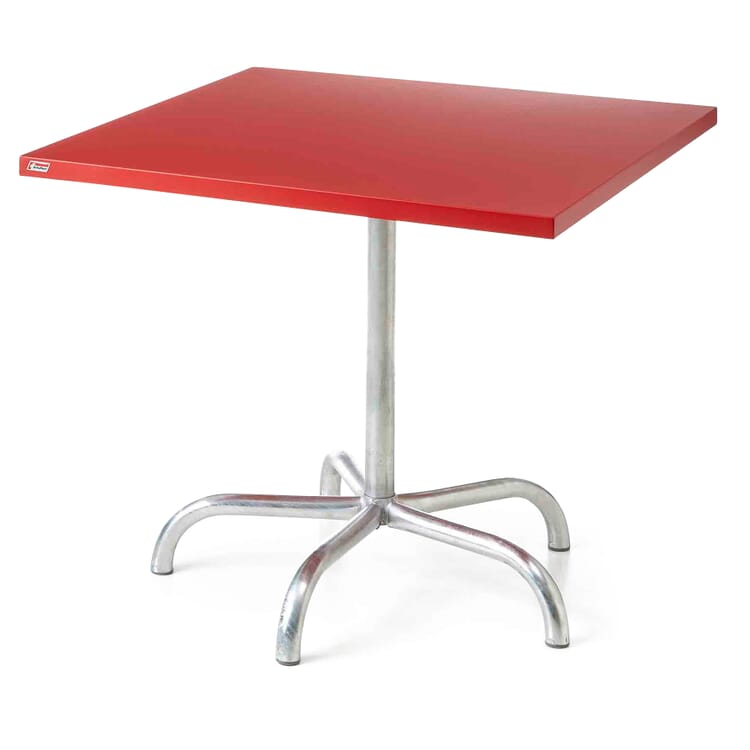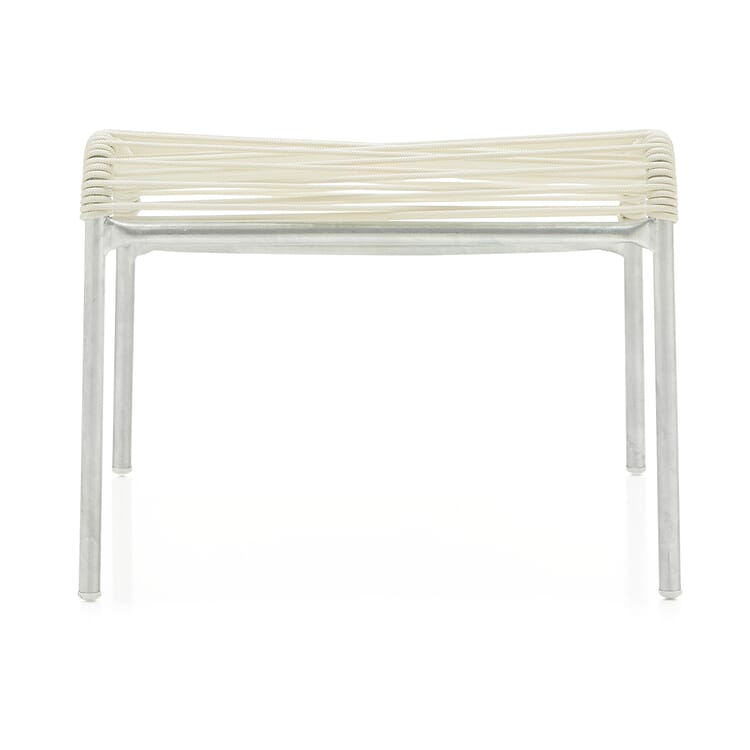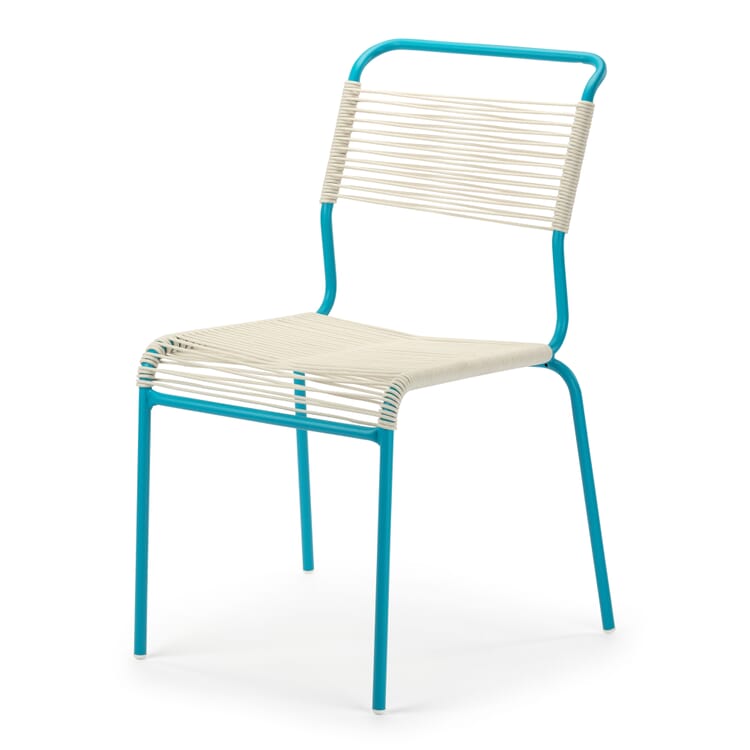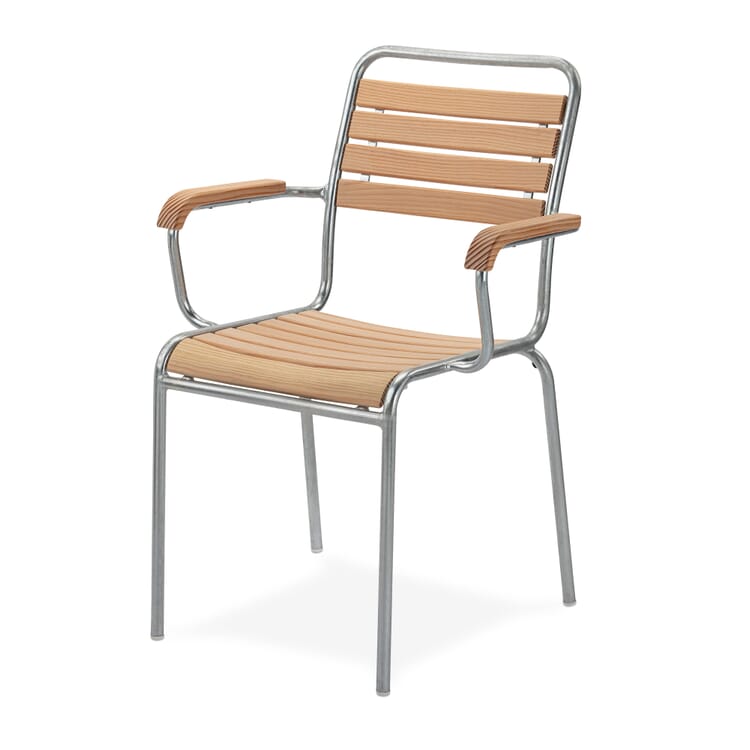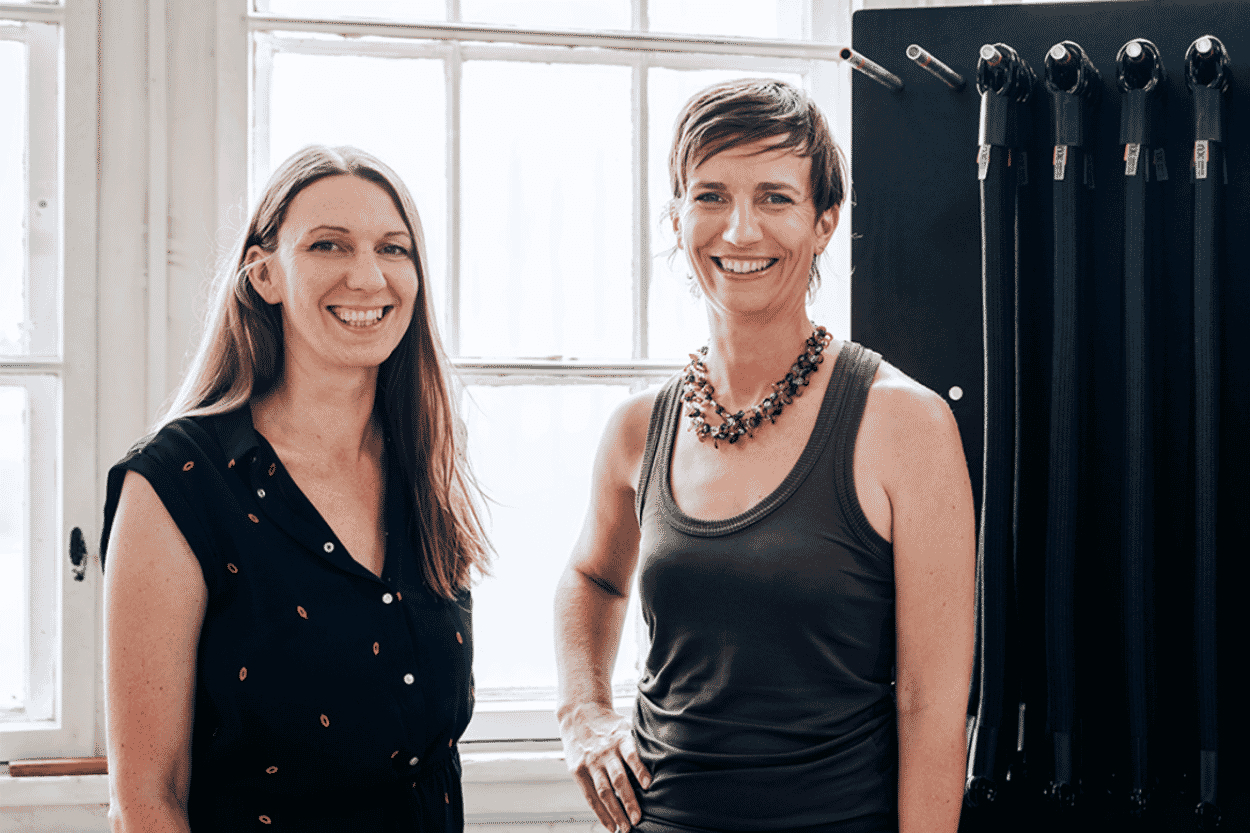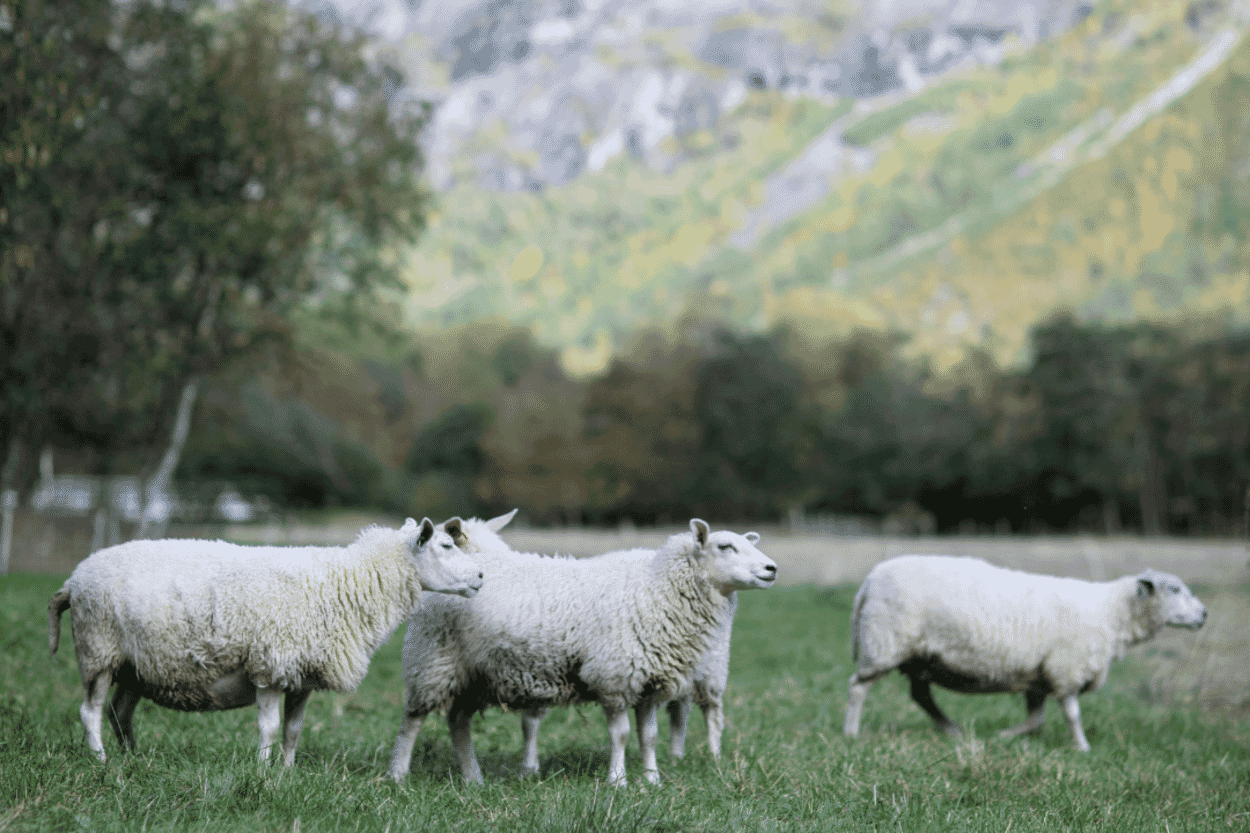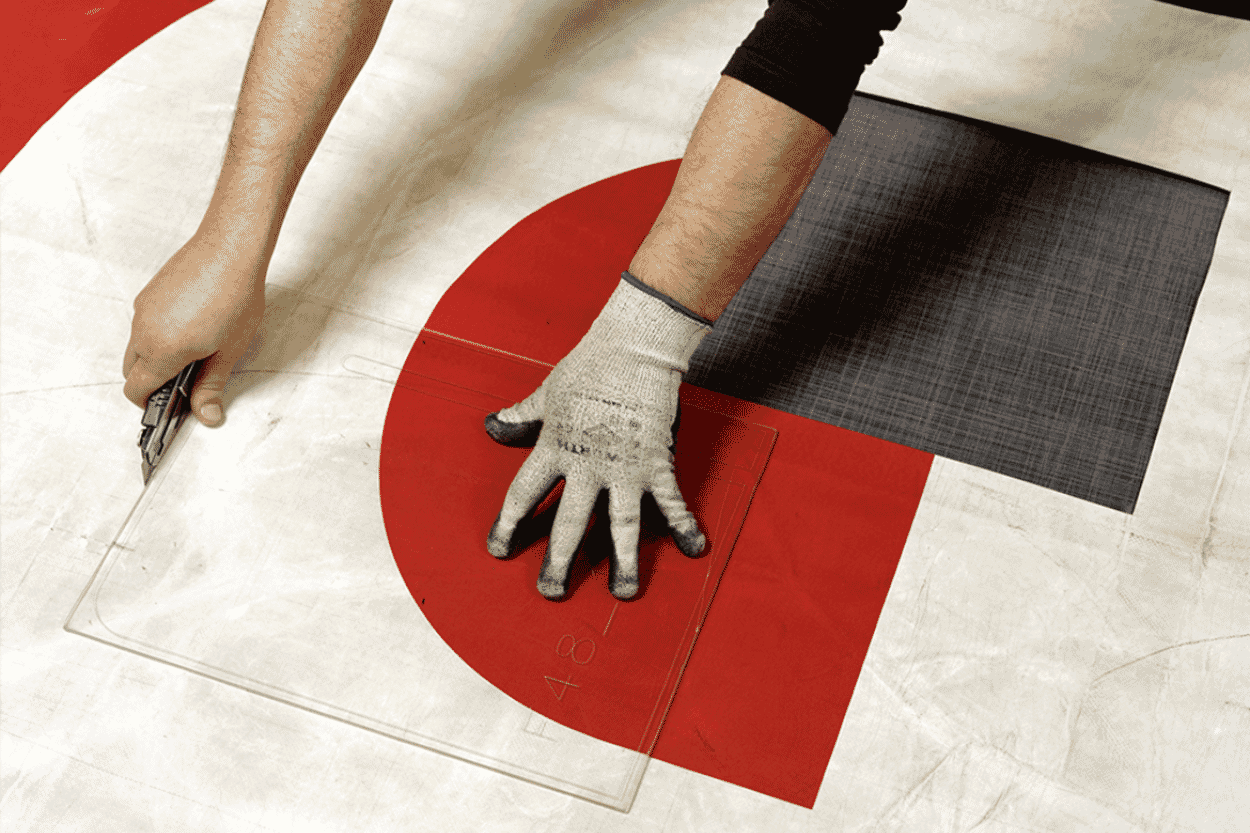Swiss design culture for outdoors
A visit to Schaffner in Müllheim in the canton of Thurgau: the Swiss family business has been manufacturing outdoor furniture since 1954 and is equally adept at subtleties of form and technical sophistication.
Text: Susanna Köberle
Stubbornness doesn't have to be a negative thing. You could also put this characteristic in a positive way and say that it is about perseverance and consistency. In the case of Schaffner, a company specializing in garden furniture, this attitude has proven its worth. Founded in 1954, the family business can look back on a long history - ups and downs included. For a small company, such fluctuations can be existential. All the more reason to stick to the high-quality manufacture of the products, which demonstrates a quasi-heroic steadfastness. Anyone visiting the production facility, which has been based in Müllheim in the canton of Thurgau since 1963, is immersed in the world of a typical Swiss company. Because all items are at least 80 percent Swiss Made. And yes, it is also about the much-praised Swiss precision, clichés or not. A precision that convinced MAGAZIN a long time ago: The range includes a whole series of Schaffner products, with the WALLIS chair even one that is available exclusively from MAGAZIN.
The word machinery comes up very quickly in conversation with Martin Schaffner, the company's CEO. Even before you have seen the production facilities with your own eyes, it is clear that technical perfection plays a central role in the manufacture of Schaffner products. The manufacturer's strength lies in its consistent attention to detail. In addition to the huge range of garden furniture colors, this also includes the technical sophistication of the designs. This contributes to the longevity and ease of use of the products. Who wants to have to consult an instruction manual when storing garden furniture? Or injure yourself on rusty edges. Good design doesn't need extravagant shapes, and this is particularly clear when it comes to garden furniture. This does not mean that formal aspects are not taken into consideration. Let's take the example of stackability, a virtually indispensable function for outdoor furniture, especially in the hospitality industry. Designing a stackable chair is a challenge: it's all about subtleties, such as the angle of inclination and proportions, and therefore also about form. For stacking to work perfectly, the workmanship must also be right.
The Schaffner DNA
At this point, a brief digression into design history can sharpen our view of the specific Swiss design culture. The advent of tubular steel in the 1920s opened up the possibility of serial production. The advent of standardized and industrially manufactured furniture changed both production methods and the market. The development of appropriate machines contributed significantly to the success of the new furniture production. Iconic designs were created in Switzerland during this era; the "Die gute Form" label became the hallmark of Swiss design. The so-called Swiss Modernism and associations such as the Swiss Werkbund laid the foundations for an understanding of design that many Swiss manufacturers still feel committed to today. However, this is not widely publicized. The fact that there is more to this attitude than chasing short-lived trends is an insight that also emerges during a visit to the Schaffner factory. You sometimes learn that machines do have an influence on the appearance of the pieces. Martin Schaffner explains that his father already had a special bending machine that could bend narrower curves or a curve within a curve. "That's why our chairs look finer. It's part of Schaffner's DNA," he explains. This look also makes the difference to similar designs from other manufacturers.
The fact that Schaffner kept the early models in its range proved to be a smart move. While nobody was interested in garden furniture with a retro look for a long time, the revival followed at some point. Suddenly, these designs were back in fashion and the company's chair production picked up speed again. Nowadays, every restaurant has a garden and many businesses don't want cheap plastic goods, especially not the design-savvy establishments. Garden furniture has something to do with emotions, believes Martin Schaffner. Even the names of these chair models tell us something about the special character of the pieces: for example SÄNTIS, RIGI (Swiss mountains) or WALLIS (Swiss canton). The simplicity and unpretentiousness of these names are representative of the product itself. They reflect solid quality without frills. What looks simple is in fact complex. Many factors come into play: the sophisticated design of the individual parts - such as the invisible folding mechanism on the tables - and, last but not least, the processing of the items by machine and by hand. Many work steps require experienced manual labor, such as wrapping the spaghetti chairs, which is done at home. Martin Schaffner also learned how to wrap chairs as a child. "It's exhausting work. In the evening, you know why your fingers hurt," he says. Even today, he occasionally lends a hand.
And Schaffner's products prove something else: tradition does not have to mean looking backwards. Schaffner has reworked design classics such as the spaghetti chair and now also offers upholstery made from recycled marine plastic, which is listed in our range as the OceanYarn® series SÄNTIS. Another special feature of the company is its wide selection of colors. As with all other processes, powder coating also requires extensive know-how. To ensure that the color lasts for a long time, the piece must be placed in the oven for a certain period of time after the polyester powder has been applied. Although such processes are time-consuming, the outdoor furniture is guaranteed a long life after completion. The service that Schaffner offers also contributes to this. "The package has to be right," says Martin Schaffner. Just how much effort the furniture entrepreneur puts into ensuring that this succinct sentence is fulfilled can be seen in every single processing step. Not only do the chairs and tables have to withstand rain and wind, but the mindset of such a company must also be weatherproof.
All products from Schaffner
We have over 80 million bicycles in Germany. Whether for commuting to work, transporting children or for leisure, cyclists, their needs and requirements are as diverse as their use.
All made in Norway: Røros Tweed not only has its own spinning and weaving mill - the traditional family business also uses wool from local sheep for its textiles.
Thirty years ago, FREITAG produced the first messenger bag from used truck tarpaulins. Today, the Zurich-based company processes around 350 tons of used tarpaulin into bags, rucksacks and accessories every year.

